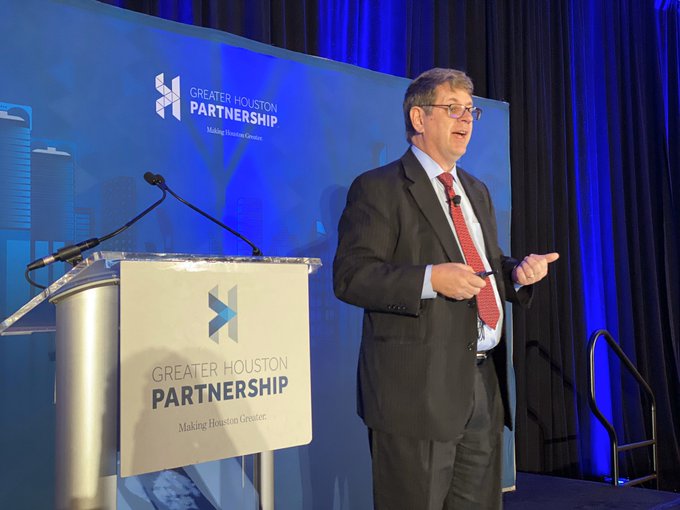Health Care, Construction, Other Sectors to Drive Houston Job Growth in 2020
Published Dec 06, 2019 by A.J. Mistretta
Buoyed by gains in health care, construction and other key sectors, the Houston area is expected to gain more than 42,000 new jobs in the coming year. That’s according to the Greater Houston Partnership’s 2020 Employment Forecast released this week at the organization’s Houston Region Economic Outlook. The half-day event featured several industry leaders and economists who discussed what they’re seeing in the regional, national and global economies.
The Partnership expects the health care, government, accommodation and food services, and construction sectors to drive job growth in Houston in 2020. Losses are likely in the energy, retail trade and information sectors.
"As Houston prepares to enter the 2020s, the region needs a new set of growth engines," said Patrick Jankowski, the Partnership’s Senior Vice president of Research. "Perhaps they will emerge from the Texas Medical Center, the Innovation Corridor or Houston's Energy Corridor. Until those new engines emerge, Houston's growth will depend heavily on the U.S. and global economies. Fortunately, both should perform reasonably well next year."
Jankowski said the 42,300 jobs the region is expected to gain in 2020 is more modest than the job gains made this year. While most sectors will see moderate employment increases, Jankowski points to a downturn that’s already begun in the energy industry that will stymie the broader jobs picture. Investment in the oil and gas sector is drying up, resulting in fewer wells being drilled, a drop in the rig count and a decline in new equipment orders. That picture, coupled with an over-saturated local real estate market, is similar to what Houston experienced coming out of the oil bust of the 1980s. “We’re not having a repeat of the ‘80s but it’s going to seem a lot more like that as we move through this period,” Jankowski said.
In a keynote presentation looking at the broader landscape, Helen Currie, Chief Economist with energy giant ConocoPhillips, characterized the global economy as relatively healthy. “Based on recent downward revisions, we now project 3.1% global growth for this year,” Currie said. “We believe 2020 will be a better year economically than 2019, but keep in mind 2019 has still been pretty good.”
Though global manufacturing has been down along with consumer confidence, Currie said she expects government stimulus policies around the world will boost growth and steer economies back to trend in 2020.
Jankowski said that despite the near-term concerns for Houston, he’s bullish on the region’s long-term health. “In Houston, history has always been on the side of the optimist, and that’s a safe bet.”
Click here to see the full report, including additional jobs figures by industry. For a look back at the economy in 2019 by industry, click here for the Houston Economic Highlights report. And sign up to stay informed about new Partnership research.
 The Houston Report
The Houston Report





















